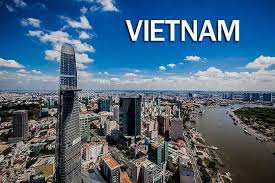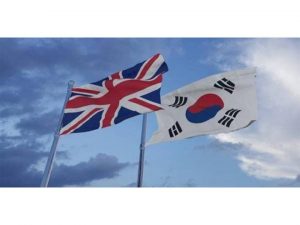Vietnam’s economy forecast to grow by 7% this year
3 min read
This topic could delve into how global economic trends, such as shifts in supply chains or international trade agreements, are influencing Vietnam’s economy forecast to grow by 7% this year growth prospects for the year. Both topics offer a broader perspective on Vietnam’s economic situation by placing it within regional and global contexts. Vietnam’s economy is on the brink of a significant upturn, with forecasts predicting a robust growth rate of approximately 7% for 2024. This anticipated economic surge is a testament to the country’s resilience and strategic initiatives that have positioned it as a rising star in Southeast Asia. The growth projection surpasses the National Assembly’s target, reflecting confidence in Vietnam‘s economic trajectory. The Central Institute for Economic Management (CIEM) and the German Agency for International Cooperation (GIZ) report a growth range between 6.55-6.95%. These figures, while slightly conservative, still underscore the positive momentum expected to sweep through the Vietnamese economy. The CIEM further suggests that, with favorable global economic conditions and strong domestic efforts, a growth rate of 6.95% is achievable. Vietnam‘s economic landscape is characterized by its dynamic investment environment, which continues to attract foreign direct investment (FDI). In 2023, Vietnam’s nominal GDP was estimated at 437 billion USD, growing at 5.05%. The resilience of the Vietnamese economy is further evidenced by the significant increase in FDI, which reached 36.6 billion USD, marking a rise of 32.1% from the previous year. The country’s strategic location at the crossroads of global trade routes offers unparalleled access to key markets in Asia, Europe, and America. This geographic advantage is complemented by a skilled and competitive workforce, which includes a young and well-educated population ready to meet the demands of foreign businesses. Vietnam’s government has implemented policies and reforms to create a more business-friendly environment. These measures include attractive incentives, tax breaks, and streamlined regulations for foreign investors. The government’s proactive approach has been instrumental in fostering a climate conducive to economic growth and investment. The industrial manufacturing sector is a significant driver of Vietnam’s economic growth. It creates employment, accelerates technology adoption, and generates diverse products for both local use and global markets. The sector’s robust performance is a magnet for foreign investment, contributing to the nation’s overall development. Consumer markets in Vietnam are expanding rapidly, driven by a booming middle class with increasing purchasing power. This demographic shift is creating new opportunities for businesses in various sectors, including retail, services, and technology. The healthcare sector in Vietnam is also experiencing growth, with increased investment in infrastructure and services. This expansion is in response to the rising demand for quality healthcare among the Vietnamese population. Technology is another area where Vietnam is making significant strides. The country’s tech industry is flourishing, with a focus on innovation and development. This progress is attracting global tech companies and fostering a vibrant startup ecosystem. Real estate in Vietnam continues to be a lucrative sector, with ongoing development in residential, commercial, and industrial properties. The sector’s growth is fueled by urbanization and the increasing demand for modern living and working spaces. Energy and utilities are critical components of Vietnam’s economic framework. The country is investing in sustainable energy sources and upgrading its utilities infrastructure to support economic activities and improve living standards. The financial services sector in Vietnam is evolving, with reforms aimed at enhancing the efficiency and stability of the financial system. These changes are paving the way for more sophisticated financial products and services. Environmental, social, and governance (ESG) considerations are becoming increasingly important in Vietnam’s investment landscape. You can read more here.
Investors are looking for opportunities that align with ESG principles, reflecting a global trend towards sustainable and responsible investment. In conclusion, Vietnam’s economy is poised for impressive growth in 2024, driven by a combination of factors including strategic location, a skilled workforce, government incentives, and sectoral potential. The country’s economic outlook is bright, with opportunities abound for investors and businesses looking to capitalize on this growth. As Vietnam continues to navigate the complexities of the global economy, its resilience and forward-thinking policies will be key to achieving and possibly exceeding the forecasted growth rate. The nation’s journey towards economic prosperity is a narrative of determination, innovation, and strategic planning, setting a benchmark for emerging economies worldwide.



